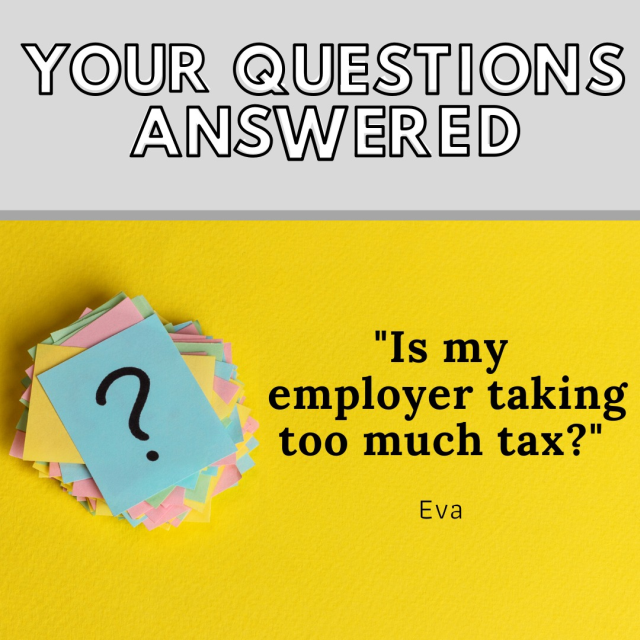Your questions answered: What's a tax code and why do I care?
 We received a simple question from Eva that has probably crossed all of our minds before:
We received a simple question from Eva that has probably crossed all of our minds before:
I think my employer is taking too much tax from my pay. How can I find out?
The thing is, Eva was paying too much tax via her PAYE payslip and you might just be too... If you are, then it'll be your tax code that will be to blame. Don't panic - HMRC will always work it out, but you may end up paying too much and then having to get it back later as a rebate.
Your tax code is used by your employer to work out how much Income Tax to take from your pay - so this is only relevant to those of you who do employed work. Your tax code will normally start with a number and end with a letter - you can find it on your payslip.
The number says how much tax-free income you are due this year and letter gives information about your situation. The standard code for the 2020/21 tax year is 1250L. This is because the tax-free allowance is £12,500 and 'L' means you’re entitled to the standard tax-free Personal Allowance.
If the number is different, then it probably means that there is an adjustment to your tax-free personal allowance to account for tax over-/under-payment in a previous year or because you have mroe than one employer and the tax-free allowance is being shared among them.
The HMRC website does a great job of walking you through the different letters on its own page: https://www.gov.uk/tax-codes, but we want to draw your attention to a couple of specific codes that mean you may be paying too much tax at source:
- 'BR' - This stand for 'Basic Rate', meaning all of your income on this job will be taxed at the basic rate of 20%. It's often used if HMRC thinks you have another employed job that you are using your tax-free personal allowance on. But if you don't have another job, then you're being taxed when you shouldn't be. Oh no!
- ‘W1’ or ‘M1’ - These are known as emergency tax codes. You get these when you start a new job but don't have a P45 from your last employer to give to your new one - it happens a lot with performers because you may come from being self-employed into being employed and don't have a P45. It means that when your employer works out how much they should tax you, they don't think about any unused tax allowance you have from the rest of the year.
Now - if you have either of these tax codes, just give HMRC a call and they can update your code. Your employer will then pay you back any incorrect tax through your payroll. And remember, don't panic! Your tax return will always sort anything that is wrong - this just helps with cash flow.
SansDrama is here to help YOU and everyone else in our amazing creative community. If you've found the site helpful then you can help us to keep this site free to use forever by using the SD Web App.
Love Jo and James x